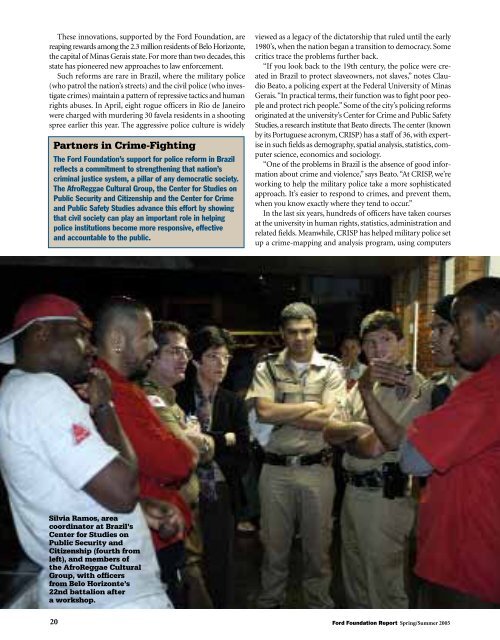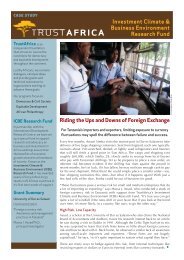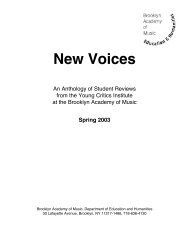The New Favela Beat - christopher reardon
The New Favela Beat - christopher reardon
The New Favela Beat - christopher reardon
Create successful ePaper yourself
Turn your PDF publications into a flip-book with our unique Google optimized e-Paper software.
<strong>The</strong>se innovations, supported by the Ford Foundation, are<br />
reaping rewards among the 2.3 million residents of Belo Horizonte,<br />
the capital of Minas Gerais state. For more than two decades, this<br />
state has pioneered new approaches to law enforcement.<br />
Such reforms are rare in Brazil, where the military police<br />
(who patrol the nation’s streets) and the civil police (who investigate<br />
crimes) maintain a pattern of repressive tactics and human<br />
rights abuses. In April, eight rogue officers in Rio de Janeiro<br />
were charged with murdering 30 favela residents in a shooting<br />
spree earlier this year. <strong>The</strong> aggressive police culture is widely<br />
Partners in Crime-Fighting<br />
<strong>The</strong> Ford Foundation’s support for police reform in Brazil<br />
reflects a commitment to strengthening that nation’s<br />
criminal justice system, a pillar of any democratic society.<br />
<strong>The</strong> AfroReggae Cultural Group, the Center for Studies on<br />
Public Security and Citizenship and the Center for Crime<br />
and Public Safety Studies advance this effort by showing<br />
that civil society can play an important role in helping<br />
police institutions become more responsive, effective<br />
and accountable to the public.<br />
viewed as a legacy of the dictatorship that ruled until the early<br />
1980’s, when the nation began a transition to democracy. Some<br />
critics trace the problems further back.<br />
“If you look back to the 19th century, the police were created<br />
in Brazil to protect slaveowners, not slaves,” notes Claudio<br />
<strong>Beat</strong>o, a policing expert at the Federal University of Minas<br />
Gerais.“In practical terms, their function was to fight poor people<br />
and protect rich people.” Some of the city’s policing reforms<br />
originated at the university’s Center for Crime and Public Safety<br />
Studies, a research institute that <strong>Beat</strong>o directs. <strong>The</strong> center (known<br />
by its Portuguese acronym, CRISP) has a staff of 36, with expertise<br />
in such fields as demography, spatial analysis, statistics, computer<br />
science, economics and sociology.<br />
“One of the problems in Brazil is the absence of good information<br />
about crime and violence,” says <strong>Beat</strong>o. “At CRISP, we’re<br />
working to help the military police take a more sophisticated<br />
approach. It’s easier to respond to crimes, and prevent them,<br />
when you know exactly where they tend to occur.”<br />
In the last six years, hundreds of officers have taken courses<br />
at the university in human rights, statistics, administration and<br />
related fields. Meanwhile, CRISP has helped military police set<br />
up a crime-mapping and analysis program, using computers<br />
Silvia Ramos, area<br />
coordinator at Brazil’s<br />
Center for Studies on<br />
Public Security and<br />
Citizenship (fourth from<br />
left), and members of<br />
the AfroReggae Cultural<br />
Group, with officers<br />
from Belo Horizonte’s<br />
22nd battalion after<br />
a workshop.<br />
20 Ford Foundation Report Spring/Summer 2005









